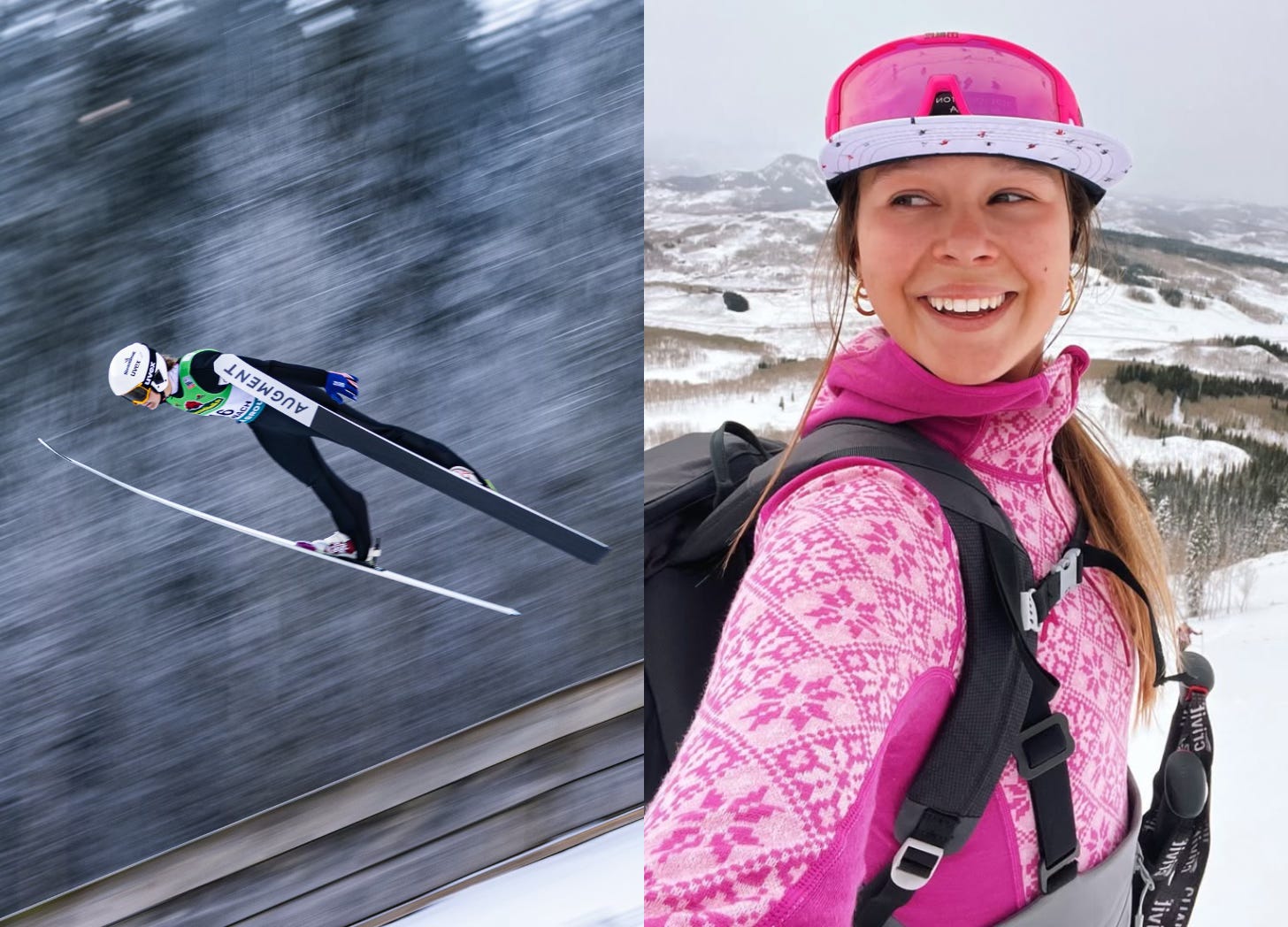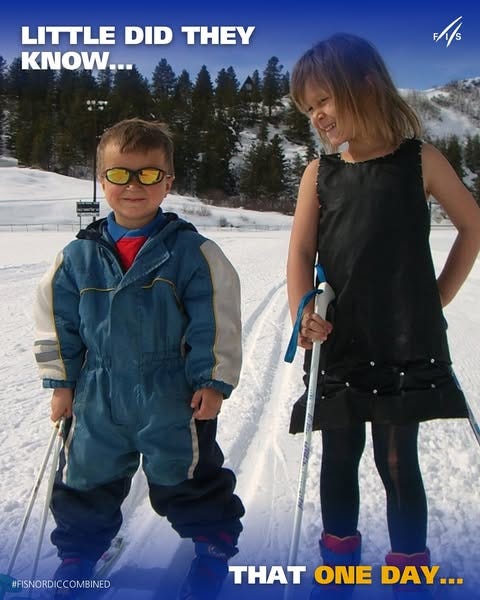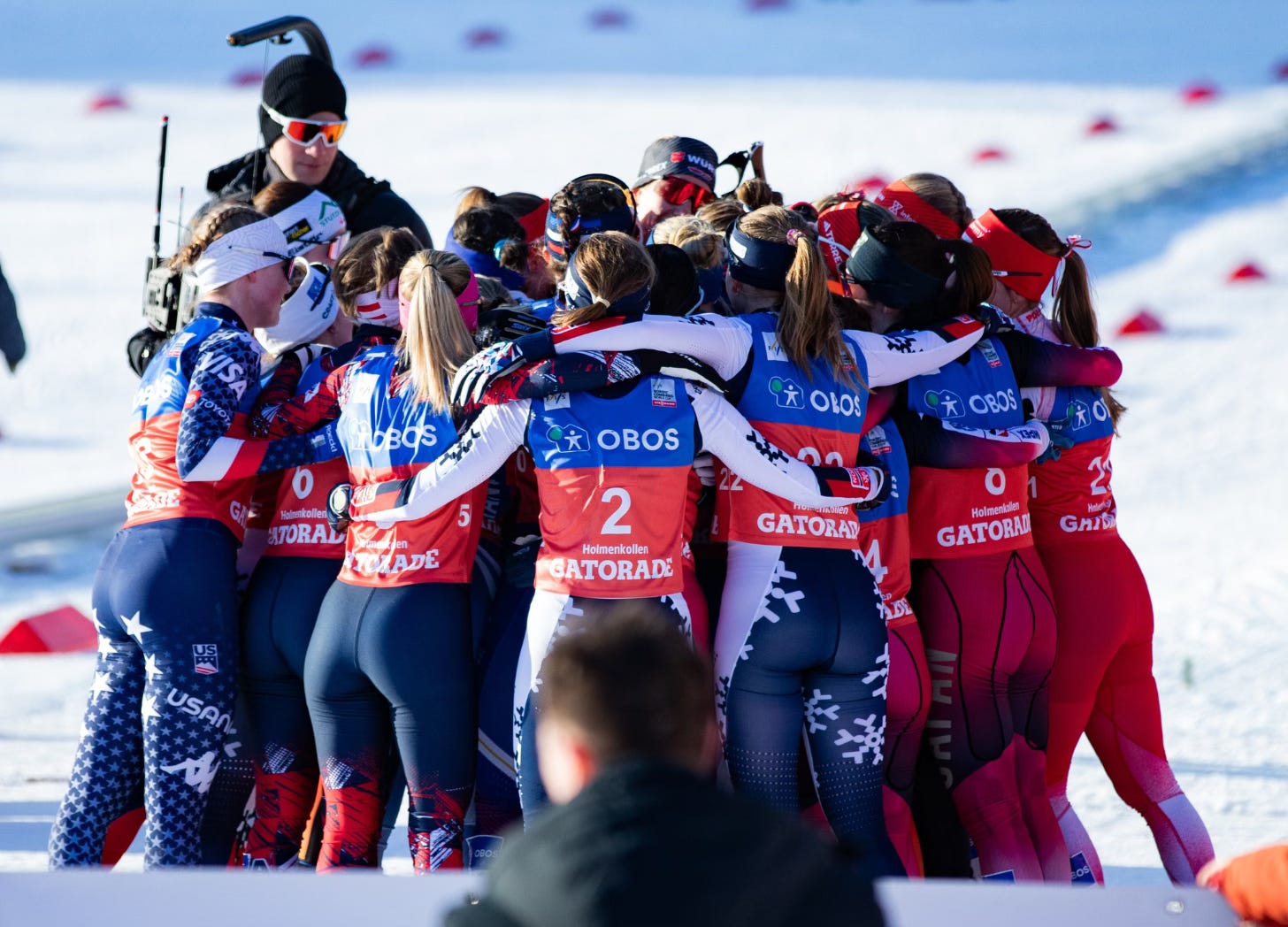'I’m a skier in the only Olympic sport women can’t compete in'
Annika Malacinski is leading the fight for inclusion - and for the future of her sport, Nordic combined.

Annika Malacinski is a skier whose dream is to compete in the Olympics. But she can’t.
Not because she’s not good enough, but because her sport, Nordic combined, is the only Olympic discipline that doesn’t include a women’s event.
“I do the same sport, same training, same everything as my brother,” says the 25-year-old American skier, whose brother (pictured below when they were children) is also a skier who has taken part in the Youth Olympics.
“The difference is he’s a man with a penis and can go to the Olympics. I can’t.”
Nordic combined - a gruelling sport that fuses ski jumping with cross-country skiing - has been part of the Olympic Games since their inception in 1924.
“The history of Nordic combined is about who's able to master the Nordic sports: not only cross-country skiing, not only ski jumping, but both.” Malacinski says. “We're not only training for one discipline. And that's what makes this sport so challenging.”
Malacinski is on the US national team and has taken part in the Women’s Nordic combined World Cup and World Championships. But it’s still a men-only event when it comes to the Olympics.
She knows that being included in the Games is not just symbolic: it brings funding, visibility, and legitimacy to a sport. Without it, athletes can struggle to secure sponsorships or inspire the next generation.
Malacinski thought things might change in 2022, when the International Olympic Committee (IOC) announced its events for the 2026 Winter Games.
She was mid-flight between Europe and the US at the time. “I’d bought Wi-Fi so I could watch the meeting,” she says. But it wasn’t to be - there was no announcement. “I genuinely thought they’d announce it and I’d order champagne. Instead, they just skipped over us. It wasn’t even a proper explanation.”
Instead of focusing on the women’s sport, the IOC said that the event was at risk of being dropped from the Olympics altogether, as not enough countries had won medals in recent Games, and the sport had “by far the lowest audience numbers” of any discipline.
Malacinski posted a tearful video to TikTok after the IOC's decision. “I was heartbroken,” she says. “I cried the entire flight. And suddenly people were listening.”
She has become a vocal campaigner for the women’s event. This year, her short film called Where She Lands was released, telling her story of competing while fighting for gender equality. It screened at US film festivals and earned attention far beyond the sport's usual audience.
“I work just as hard as any Olympian,” says Malacinski. “I train for two disciplines, manage sleep, nutrition, recovery - plus now I have to be an advocate too. I’ve done interviews, made a film, posted on social media, spoken out. I’ve done everything in my power.”
But it’s an uphill and tiring battle: “It's not a sport that a lot of people know about. I know the high-level [male] athletes and the World Cup athletes, they're very much focused on training… there's no big influencers like Alex Hall or Simone Biles or Ilona Maher. I genuinely don't think we have the voice to make an uproar."
The Female Lead contacted the IOC, which repeated its concerns that the male Olympic event had what it called low viewership and participation rates, and said that both the men’s and women’s event needed to present a stronger case “in terms of universality, popularity and level of performance” to be included in the next Winter Games in 2030.
Malacinski disputes these ideas. “We’ve done everything the International Olympic Committee asked of us. We showed up, we performed, we grew the sport. And still, we’re excluded.”
The most recent Nordic world championships, which includes Nordic combined, saw a 169% rise in social media reach in 2025 compared to the previous event in 2023, according to The International Ski and Snowboard Federation.
“They said we needed more countries on the podium. We’ve had that,” says Malacinski. “They said we needed more nations participating - we’ve got the same number as other winter sports like bobsled. They said the men’s event had low viewership in 2022, but that’s not our fault. We’re not the men’s event.”
If the IOC doesn’t include the women’s event at the next Winter Games in 2030, there’s a risk the entire sport - men’s included - could be dropped. “It would be extinct,” Malacinski says simply.
She likens the situation to being thrown into deep water without a lifeline. “The IOC tied our hands and feet, threw us overboard, and said, ‘Swim to shore.’ How can we grow if we’re not even given the same opportunity?”
For now, she’ll keep campaigning - and skiing.
“If we get in, it’ll mean we survived. That all of it - the training, the financial loss, the pain - it paid off,” she says.
“But more than that, it would show those younger girls that we belong. That we work just as hard as any athlete on that podium.”





